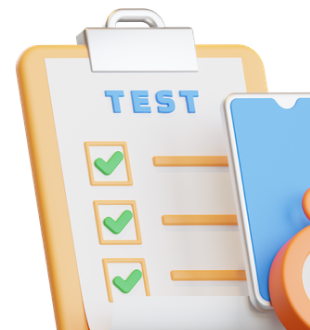Adjectives Ending With ED and ING Rules
Contents
Adjective endings can be tricky for English language learners since there are so many rules to follow. In this reference, we'll go over the rules for adjectives that end with ED and ING. We'll also provide handy lists and rules explanations for each.
Why Adjective Endings Can Be Confusing
Adjectives can be tricky because many rules aren't immediately obvious to learners. For example, there are rules to properly order adjectives called the Royal Order, and some adjectives require the use of different endings depending on how they are used in a sentence.
These endings change depending on the context. For example, the adjective “excited” describes how someone feels, while “exciting” describes something that causes that feeling.
Let's explore the difference between adjectives ending in ED and ING further.
Adjectives with ING
Adjectives with -ING are used to describe things or situations that cause the emotion. For example, you can use an -ING adjective to describe a running person or an exciting situation.
The rules for -ING adjectives are fairly simple. Generally, -ING adjectives are formed by simply adding -ING to the base form of your verb. For example, the verb "run" becomes the -ING adjective "running." Of course, there are a few exceptions to this rule.
Exceptions for adjectives ending in ING
- Verbs ending in -e drop the -e before adding -ing. For example, the verb "dance" becomes the -ING adjective "dancing."
- Verbs ending in a consonant and a single vowel double the consonant before adding -ing. For example, the verb "hit" becomes the -ING adjective "hitting."
- Verbs ending in "-y," keep the “-y” ending before adding -iNG. For example, the verb "cry" becomes the -ING adjective "crying."
-ING Adjectives List
Here is a list of 20 -ING adjectives to help you understand the concept better:
- Excite + ING = Exciting
- Confuse + ING = Confusing
- Encourage + ING = Encouraging
- Bore + ING = Boring
- Amuse + ING = Amusing
- Frustrate + ING = Frustrating
- Interest + ING = Interesting
- Surprise + ING = Surprising
- Frighten + ING = Frightening
- Tempt + ING = Tempting
- Amaze + ING = Amazing
- Delight + ING = Delighting
- Puzzle + ING = Puzzling
- Exhaust + ING = Exhausting
- Scare + ING = Scaring
- Calm + ING= Calming
- Upset + ING = Upsetting
- Cheer + ING = Cheering
- Embarrass + ING = Embarrassing
- Tire + ING = Tiring
8
Adjectives Ending in ED
Adjectives ending in -ED describe the feelings or emotions of someone or something. For example, you can use an -ED adjective to describe an exhausted person or a surprised girl.
The rules for -ED adjectives are a bit more complicated than -ING adjectives. Generally, -ED adjectives are formed by adding -ED to the base form of the verb (but it applies to regular verbs only). For example, the verb "frighten" becomes the -ED adjective "frightened." There are some exceptions to this rule, too:
Exceptions for adjectives that end in ED:
1. If the verb ends in a consonant + y, the “y” changes to an “i” before -ED is added.
Example: fry → fried
2. If the verb ends in a vowel + y, -ED is added without changing the “y.”
Example: play → played
3. If the verb ends in a consonant + e, -D is added instead of -ED.
Example: bake → baked
4. For single-syllable verbs ending in certain consonants (c, g, h, p, s) that follow a short vowel, a double letter is added before -ED.
Example: stop → stopped
-ED Adjectives List
Here is a list of 20 -ED adjectives to help you understand the concept better:
- Amaze + ED = Amazed
- Confuse + ED = Confused
- Depress + ED = Depressed
- Excite + ED = Excited
- Frighten + ED = Frightened
- Hurry + ED = Hurried
- Interest + ED = Interested
- Joke + ED = Joked
- Laugh + ED = Laughed
- Mimic + ED = Mimicked
- Notice + ED = Noticed
- Puzzle + ED = Puzzled
- Question + ED= Questioned
- Relax + ED= Relaxed
- Surprise + ED= Surprised
- Tire + ED= Tired
- Upset + ED= Upset
- Worry + ED= Worried
- Yawn + ED= Yawned
- Embarrass + ED = Embarrassed
Adjectives Ending with ED and ING Rules Examples
Now that you understand the rules for -ED and -ING adjectives, let's take a look at how to use them in sentences. Generally, -ING adjectives are used to describe the state or condition of something, while -ED adjectives are used to describe feelings or emotions.
For example, you can use the -ING adjective "confusing" to describe a quiz and the -ED adjective "confused" to describe how someone feels about the quiz.
Here are some more examples:
- The lecture was boring.
- I felt bored during the lecture.
- The movie was exciting.
- I was excited to see the movie.
- The roller coaster ride was terrifying.
- I was terrified when the roller coaster went upside down.
- The competition was challenging.
- I felt challenged by the competition.
- His speech was depressing.
- Everyone was depressed after hearing his speech.

Summary
Adjectives ending with -ED and -ING can be confusing for English language learners. However, understanding the rules will help you use them correctly in your writing.
Over time, you will become more comfortable using these adjectives and easily create them while writing and speaking. Check out more rules for adjectives in related references!



Comments